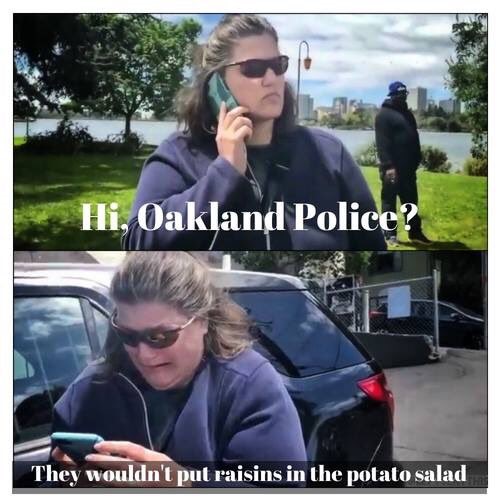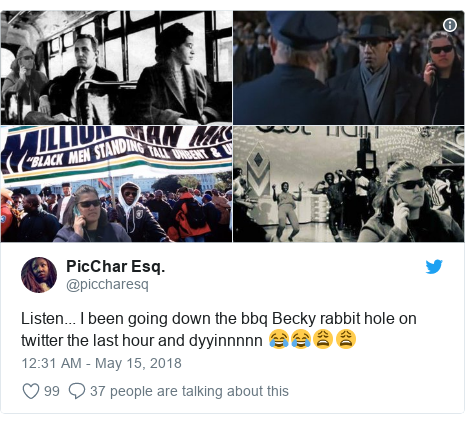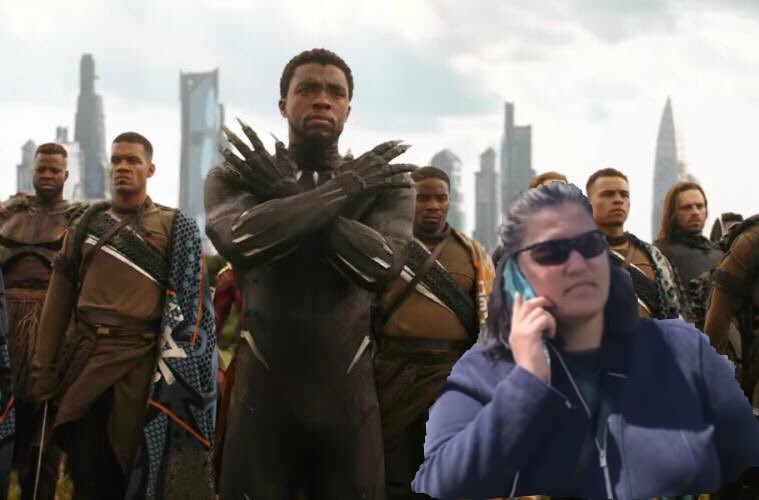This article calls scholars and people of the faith communities to look at the ways USA Latinxs imbibe information and how Hebrew Bible/Old Testament can be used as a tool to strengthen biblical education for the purposes of critical political engagement in the age of Trump.
Data
According to the 2014 Pew Research Center’s Religious Landscape Study, 77% of USA Latinxs surveyed identify as of a Christian denomination.[1] If broadened out, to gain a general pulse, more than 3 out of 4 Latinxs in the USA are Christ-identified. From the same Religious Landscape Study, over 45% of those Christ-identified claim to read scripture “at least once a week”, 33% claimed they “seldom to never” read scripture. Additionally, 50% of USA Latinxs indicated that they “seldom to never” participate in prayer, scripture study, or religious education groups. This means that of the 3 out of 4 Latinxs that are Christ-identified, most “seldom to never” participate in traditional spaces for encountering scripture.
Most significant to this paper, there is no survey data to draw from, thus, illuminating the low percentage of USA Latinxs that are Old Testament or Hebrew Bible literate. This is not surprising because a walk-through of online discussion boards and groups for preachers, pastors, and priests reveals a relevant and debated question. Why don’t pastors or priests preach from the Old Testament regularly? Church leaders themselves recognize a nervousness or unwillingness on their part to engage their Old Testament regularly.
For centuries Christ-identified communities cultivated collective sacred spaces in church and home for education and edification. With Old Testament prioritized minimally from clergy, Christ-identifiers do not know how to plumb its pages for the reflection, resilience, and resistance necessary for times such as these.
Of the other 1 out of 4 USA Latinxs, it can be estimated that approximately 200,000 of them are Latinxs Jews; according to a 2015 study “[…] carried out by David Ayon, senior strategist for the opinion research group Latino Decisions. Requisitioned by an arm of the American Jewish Committee (AJC) and underwritten by the Ford Foundation […]”.[2] With the strongest surveyed identity marker, 95% of Latinxs Jews in the USA prefer to self-identify first as Jews. Many having undergone a “double-diaspora” with family migrating to Latin America from Europe in the late 19th-century, then migrating to the United States of America only a few generations later.[3] Similarly reported in the aforementioned Pew study, 62% of USA Jews “seldom to never” “participate in prayer, scripture study, and religious education groups.”[4] More specifically, 65% reported that they “seldom to never” read scripture. This data suggests that USA Latinxs have a limited engagement and likely limited literacy in the Hebrew Bible and Old Testament.
SOCIAL MEDIA
According to the 2018 Nielsen report Descubrimiento Digital: The Online Lives of Latinx Consumers, “US Hispanics are digitally empowered and rapidly moving to the forefront of technology adoption.” [5] The community is ‘pacesetting’ in the “ […] media universe with social media/apps/mobile video usage, digital music consumption, radio listening, TV viewing, gaming and web activities.”[6] This is not surprising because 60% of the USA Hispanic population, according to the report grew up in the Digital Age.
The USA Latinx and Hispanic population is a digitally conversant population. Anecdotally speaking, even though my mother still calls DVDs “CDs” and can’t trouble shoot on the family PC, doesn’t mean her emoji, GIF, and Facetime game are not fierce.
Basic Terminology:
Meme is a term established by Richard Dawkins in his 1976 book The Selfish Gene addressing the way cultural information spreads. As internet parlance, it refers to a visio-textual image or video that presents and counter-presents or re-presents at the same time [definition mine]. As early as 1994, Jeff Godwin described in Wired Magazine the process of a meme as “[…] an idea that functions in a mind the same way a gene or virus functions in the body. And an infectious idea, (call it a “viral meme”) may leap from mind to mind, much as viruses leap from body to body.”[7] To give a brief analogy, if in academic and church circles we talk about a community espousing a high-Christology or a low-to-no-Christology, then in knowledge acquisition meme are low-level knowledge acquisition. The encounterer of a meme needs no formal education to comprehend a meme because memes build off general cultural engagement. Encounterers do not have to work for the information. In fact, to make one work too hard to comprehend a meme is detrimental to the meme’s ability to “go viral”—meaning to be easily shared and enjoyed throughout demographic stratum. It’s a cheap education. That is why it is important to bring the strengths and weakness of USA Latinxs together for the education and edification of our people.
BBQ BECKY
Here are a few starter memes to transitioning from statistics to engaging visio-textual images.
IMAGE ONE:
IMAGE SOURCE: Closed Facebook Group for Society of Biblical Literature
IMAGE TWO:
IMAGE SOURCE: http://www.latina.com/10-best-young-cardi-memes-prove-everyone-needs-little-cardi-b
Both memes have their humor rooted in the Hebrew Bible/Old Testament. In both cases there is an image of a child expressing an age appropriate reaction or motion. The text offers a nuance to the visualized expression. In the case of image one, excitement and joy. In the case of image two, in Oakland, Calif. we call it a “snatch and educate”; derived from the colloquialism and action of snatching a wig off someone’s head. A “snatch and educate” is a swift uncovering of the unrevealed and replaced with educative retort.
Psalm 8 houses the much-lauded biblical phrase, “Out of the mouth of babes.” Psalm 8:1-2 (NRSV) states, “O LORD, our Sovereign, how majestic is your name in all the earth! You have set your glory above the heavens. 2Out of the mouths of babes and infants you have founded a bulwark because of your foes, to silence the enemy and the avenger.” The verse has been reduced in colloquial parlance to singularly, “out of the mouth of babes” leaving behind the structural emphasis praising God.[8]
Many Christ-followers and non-Christ-followers alike have heard and/or used this expression to emphasize a situation or moment when a child has cut right to the point about a circumstance, comment made, event, etc. It is plausible that the prevalence of the colloquial usage is due to poor scriptural education, but potentially equally likely that this sub-category of meme has greater shareable value absent of the requisite indication that the child’s words praise God. Nevertheless, both images present variant options for “easy knowledge” with a laugh, about the capacity of children: excitement on one end; critical look at ethnicity or race, colonization and education, possibly even social justice on the other.[9]
Having completed our starter memes, we are now primed to think about the intersection of three categories: 1) social media content and culture; 2) Hebrew Bible/Old Testament; and 3) and reflection and resistance.
IMAGE THREE:
IMAGE SOURCE: https://www.ebaumsworld.com/pictures/racist-oakland-lady-has-become-a-meme/85657295/
Image three juxtaposes two stills from the April 29, 2018 video recorded by Michelle Snider of a Jennifer Schulte, aka BBQ Becky, waiting for Oakland PD to show up to resolve a debate-turned-altercation regarding where charcoal BBQ pits can be set up at historic Lake Merritt. Categorically, the BBQ Becky memes are “narrative and counter-narrative” memes—meaning they visually present an event through a single image or juxtaposed images, with foregrounded text presenting a counter-narrative, regularly for the purposed of humor, mocking, or shaming. In the case of image three, the counter-narrative juxtaposes the gravity of calling the OPD against a debatable cultural taboo of placing raisins in potato salad, a common dish served at BBQs; thus keeping the meme in contextual alignment with the original event.
Since the Oscar Grant murder New Year’s Day 2009, Oakland residents have been in an ongoing struggle with OPD about lethal use of force disproportionately used against black and brown residents and the flood of new white residents coming in from other Bay Area cities, and in particular San Francisco, as the cost of living rises in the Bay Area. The effects have created numerous instances of police being called in non-emergent situations by new white residents. At one point the OPD received over 700 calls a day for non-emergent situations about black and brown residents “walking down the street, knocking on a door, not picking up dog poop, […] sales persons knocking on doors, US postal service delivery […]”, and my personal favorite for standing at a bus stop.[10]
IMAGE FOUR:
IMAGE SOURCE: https://www.reddit.com/r/PoliticalHumor/comments/8yrl1i/collect_em_all/
Jennifer Schulte was the first of a series of incidents of similar non-emergent police calls made across the USS Spring and Summer 2018. Each receiving an internet hashtag and pithy pseudonym as an uptick of “existing while black” events went viral. Within only days, social critique developed and surfaced on Twitter.
IMAGE FIVE:
IMAGE SOURCE: https://www.bbc.com/news/newsbeat-44167760
What emerged were threads of historic moments, culturally significant spaces, and notable entertainment media for black Americans with BBQ Becky photoshopped into the image. The threads as evolving counter-narratives transform BBQ Becky from her Spring 2018 reception as gentrifier with overtones of racist and general fun-hater, to a stand in for colonialism, Jim Crow, and white supremacy. BBQ Becky memes almost “broke the internet” because of their capacity to critique the subaltern black American political existence while laughing at the absurdity of Trump-era “existing while black” events without ever looking away from growing threats against black life.
Intersecting Bible:
The Hebrew Bible and Old Testament differ categorically as theological literature. Canonical arrangement of the Hebrew Bible for example tells a story that ends at the book of Chronicles with Israel outside of their land. The Old Testament, on the other hand, tells a story that ends with the book of Malachi anticipating the coming “Day of the Lord”. Canonical arrangement, with some help from internet parlance, functions like a thread with each work having its own construction and context, but also responding to the presence of other works. At a macro-level canonical structure mimics the theological narratives which are fully differentiated in the lived religions of Judaism and Christianity.
Jewish and Christ-identified USA Latinxs have lived different socio-political narratives. Yet, in each case, being forced to negotiate the terrain of “foreignness” or “perceived foreignness” with relation to USA soil. Using Hebrew Bible/Old Testament as a newly reimagined place for socio-theological reflection can offer USA Latinxs resistance building strategies grounded in a biblical faith. For example, the book of Nahum is a 7th c. BCE work which celebrates the destruction of the Assyrian city of Nineveh. At least two hundred years later, the book of Jonah emerges as a 5th c. BCE work, though set in the 8th c. BCE, that calls the prophet to bring an oracle of salvation to the same Ninevites. Each work negotiating the place of empire, power, and most pertinent to this paper, foreignness and foes. Similarly, the books of Ezra and Ruth, this time as products of the same period—that is, post-exilic age of temple reconstruction—negotiate empire, power, and the debated status of foreign wives for Israelites. Starter reflection questions could be: How ought we act toward those we perceive as a threat socio-politically? How ought we act toward those we perceive as a threat at the heart of our self-identification?
IMAGE SIX:
IMAGE SOURCE: https://thesocietypages.org/socimages/2018/05/29/summer-reading-with-bbq-becky/
Image six is a meme with no words. BBQ Becky was photoshopped into a still from the movie Black Panther, directed by Oakland native Ryan Coogler. The mythical land of Wakanda at the heart of the Black Panther comics and movie, visualize an African country never touched by European colonialism, a unicorn of nationhood. Juxtaposition of these two images empowered the counter-narrative action undertaken by Oakland residents and organized via social media in the days following this event. The imaginative space of self-definition, where a false narrative is rejected emerged as communal resistance, as celebration. Oakland held a city BBQ to celebrate its rich black heritage in the exact spot at Lake Merritt where the altercation happened.
Similar strategies were used by USA Latinxs weeks later, when on May 16, 2018 Aaron Schlossberg, aka Taco Tom, of Manhattan accosted two Latinxs for speaking Spanish in the United States of America and threated to call immigration, essentially threatening forced deportation. Celebration as resistance strategy was deployed swiftly via food, music, and dancing in front of his apartment building, inverting the threat of displacement.
As the “pacesetters” in the “media universe” and as a digitally conversant population, we learned how to strategize deployment of an imaginative space of self-definition, where a false narrative is rejected for the emergence of communal resistance as celebration. We need to track and integrate social media into how we evaluate shifts in our political threats and agency; noting rather than dismissing the quick lessons USA Latinxs are encountering, consuming, and promulgating in the viral spread of these stories leading to action. Hebrew Bible/Old Testament at its macro-levels offers an underutilized conversation partner for critical events of today. USA Latinxs are not learning our theological lessons at church or synagogue at the rate they had in the past. At this moment I am reminded of one thread contributing to the rise of biblical wisdom literature, a need to not completely lose our youth to the culture of our oppressors.









